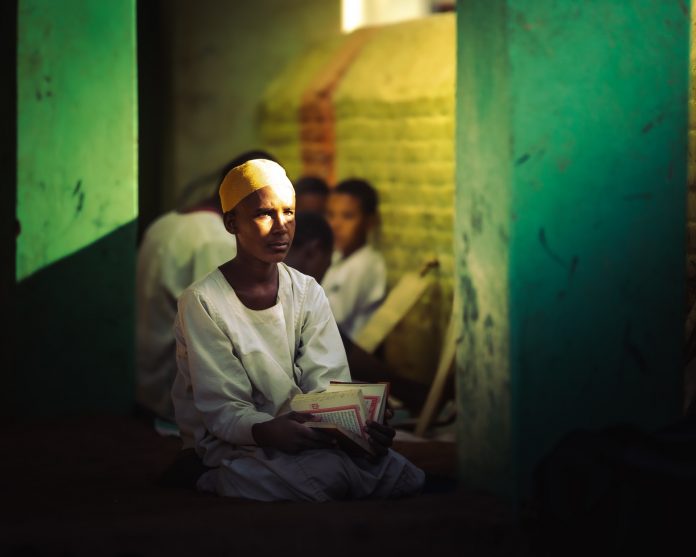
My introduction to Ramadan started early. I was 12 and my mother and Sudanese stepfather had moved us to Khartoum, Sudan. Apart from feeling a sense of displacement and missing the relatives I had left behind in ex-Yugoslavia, I also had to adjust and familiarize myself with my stepfather’s Muslim family and the country’s prevalent Muslim populace.
At first, we lived with my stepfather’s family in an impoverished part of the city. Within its dusty streets lined with shabby, mud-brick houses, I learned about Ramadan. This new bewildering yet captivating existence opened up like the petals of a jasmine flower. I was young and easily impressionable. I quickly adapted to the events marking the life of my new Muslim relatives. I grew to look forward to the ritual of Iftar, the breaking of fast at sunset.
During the day, a lazy stillness prevailed in the neighborhood. People hid inside their humble homes, sprinkling water on the earthen floors to cool the air, sometimes covering with wet bed sheets for the same reason.
About an hour or so before the breaking of fast, a cacophony of sounds would arise from the previously inactive kitchens. Grandmothers would begin frying flat bread over the coal stove, importantly swatting flies and issuing orders to the younger members. Some were sent off on errands to the corner shop, for a square of white cheese or a bowl of foul. This bean dish was a staple requirement of any Sudanese Iftar, liberally drenched with sesame oil and eaten with chunks of bread. Then, there was the array of juices to be prepared. Fresh lemonade, mango and guava juices lined up in a colorful display next and a uniquely Sudanese concoction called abre.
As the call of the Muezzin for the sunset prayer neared, frantic preparations reached a climax. Each household served their meal in a round steel tray around which they would all gather afterwards. Finally, the sky would burst into song as the words from the Quran rang through the city and filled those faithful fasting with relief and gratitude.
Dates were eaten first, sometimes with a few sips of water or juice. Then, prayers were performed in the dusty yard over which a straw mat was placed as the family gave thanks together. The head of the family (usually the grandfather or in his absence a father, uncle or oldest son) stood proudly in the front, a place of honor. The men and boys lined themselves behind, then the women and girls. Again, a silence settled on Khartoum’s streets, inside homes, even among rows of labakh trees lining the Nile. I remember how even the birds quieted and a strange sense of peace blanketed all. Muslims gave thanks in silence, bowing gracefully, tapping their fingers on their knees in unison at the end.
After this final restraint, they rose and were free to indulge in their meal. Even children fasted, showing off their new awareness of piety, rushing towards adulthood with glee. Eagerly, they converged around the delicacies offered, for during Ramadan every mother and grandmother made more of an effort and produced something special. Soft cheese or meat samosas jostled on the tray with tamiya (garbanzo bean patties fried in hot oil), dome-shaped maize pudding was served with a dried okra and ground meat moolah stew. For dessert, colorful bowls of jelly hid a biscuit or sliced bananas. Sometimes, there were sweetened noodles or rice pudding.
As I remember those Ramadans in Sudan, I see the humble unquestioning commitment to faith. I remember watching Arabic episodes portraying the voyage of Islam through history and the life of the Prophet Mohammad, Peace Be upon Him. The characters were valiant and faithful, their flowing robes and galloping horses magnificent against the backdrop of the desert sunset.
Even then they had stirred something inside me.
































